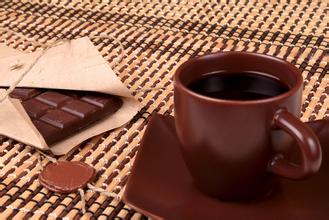Kenya Coffee Bean Flavor Description Grind Scale Method Variety Introduction to Region of Origin
Aromatic, full-bodied, with fruit flavor, taste rich and perfect. Kenyan coffee has a wonderful fruit flavor, tastes like BlackBerry and grapefruit, and is a favorite of many coffee gluttons. This coffee has an excellent medium purity, crisp and refreshing taste. It has a fresh flavor and is most suitable for drinking iced coffee in summer. When tasting this coffee, if it is paired with sour fruits such as grapefruit, it will certainly give me the best coffee experience. "not much like coffee, but a bit like fruit tea" is the common feeling of many people about this kind of shallow roasted Kenyan coffee.
In addition to having obvious and charming fruit acidity, Kenyan coffee is mostly from small coffee farmers, planted in a variety of different environments, encounter different climate and rainfall every year, and bring a variety of distinct and unique personalities. Take the AAPlus grade "KenyaAA+Samburu" as an example, the Samburu in 2001 has a strong aroma of black plum, the acidity is not high, and the taste is strong. The newly harvested Samburu in the winter of 2002 presents a completely different flavor, mulberry and green plum, with a little Nanyang spice (Spicy) flavor, after drinking, the aftertaste has the sweetness of green tea, the acidity is slightly higher than the year before, the taste is still strong. The common Kenyan taste is not strong, but it has a bright fruit-like flavor, some spicy and some red wine. This is how Kenya makes coffee fans full of expectations and surprises!
Kenyan coffee is mostly grown at an altitude of 1500m, 2100m, and is harvested twice a year. To ensure that only ripe berries are picked, people must tour the forest about seven times. Kenyan coffee is grown by small farmers. After they harvest the coffee, they first send the fresh coffee beans to the cooperative cleaning station. The washing station sends the dried coffee to the cooperative in the form of "parchment coffee beans" (that is, coffee beans covered with endocarp) to the cooperative ("parchment coffee beans" is the last state of coffee beans before peeling). All the coffee is collected together, and the growers charge the average price according to their actual quality. This trading method generally works well and is fair to both growers and consumers. High-quality Kenyan coffee is aromatic, full-bodied and fruity, with a rich and perfect taste. Kenyan coffee has a wonderful fruit flavor, tastes like BlackBerry and grapefruit, and is a favorite of many coffee gluttons. This coffee has an excellent medium purity, crisp and refreshing taste. It has a fresh flavor and is most suitable for drinking iced coffee in summer. When tasting this coffee, if it is paired with sour fruits such as grapefruit, it will certainly give me the best coffee experience. "not much like coffee, but a bit like fruit tea" is the common feeling of many people about this kind of shallow roasted Kenyan coffee.
In addition to having obvious and charming fruit acidity, Kenyan coffee is mostly from small coffee farmers, planted in a variety of different environments, encounter different climate and rainfall every year, and bring a variety of distinct and unique personalities. Take the AAPlus grade "KenyaAA+Samburu" as an example, the Samburu in 2001 has a strong aroma of black plum, the acidity is not high, and the taste is strong. The newly harvested Samburu in the winter of 2002 presents a completely different flavor, mulberry and green plum, with a little Nanyang spice (Spicy) flavor, after drinking, the aftertaste has the sweetness of green tea, the acidity is slightly higher than the year before, the taste is still strong. The common Kenyan taste is not strong, but it has a bright fruit-like flavor, some spicy and some red wine. This is how Kenya makes coffee fans full of expectations and surprises.

Important Notice :
前街咖啡 FrontStreet Coffee has moved to new addredd:
FrontStreet Coffee Address: 315,Donghua East Road,GuangZhou
Tel:020 38364473
- Prev

Description and treatment of Flavor of Brazilian Fine Coffee beans introduction to the taste of grinding scale manor area
Including all coffee beans grown in Brazil, except for Santos, Brazilian beans are mostly cheap and good coffee. Can be used for mass production of comprehensive coffee beans, most of which are re-roasted. The main raw material of instant coffee is also Brazilian coffee beans. When the coffee bean germ is very fresh, it is artificially refined and naturally dried in the vulva for about 60-70 days, so that the sweetness of the pulp fully seeps into the bean.
- Next

Introduction to the grinding scale of the variety characteristics of Rwanda coffee bean flavor description method
Rwanda coffee is absolutely high quality in the form of washed Arabica beans. As far as Africa is concerned, its coffee industry is remarkable because the country thrives mainly by producing the best possible coffee beans. Coffee from Rwanda is becoming more and more popular in the international market. The mission of the Rwandan Coffee Association is to manage and supervise the coffee industry in Rwanda from production to sales.
Related
- Detailed explanation of Jadeite planting Land in Panamanian Jadeite Manor introduction to the grading system of Jadeite competitive bidding, Red bid, Green bid and Rose Summer
- Story of Coffee planting in Brenka region of Costa Rica Stonehenge Manor anaerobic heavy honey treatment of flavor mouth
- What's on the barrel of Blue Mountain Coffee beans?
- Can American coffee also pull flowers? How to use hot American style to pull out a good-looking pattern?
- Can you make a cold extract with coffee beans? What is the right proportion for cold-extracted coffee formula?
- Indonesian PWN Gold Mandrine Coffee Origin Features Flavor How to Chong? Mandolin coffee is American.
- A brief introduction to the flavor characteristics of Brazilian yellow bourbon coffee beans
- What is the effect of different water quality on the flavor of cold-extracted coffee? What kind of water is best for brewing coffee?
- Why do you think of Rose Summer whenever you mention Panamanian coffee?
- Introduction to the characteristics of authentic blue mountain coffee bean producing areas? What is the CIB Coffee Authority in Jamaica?

